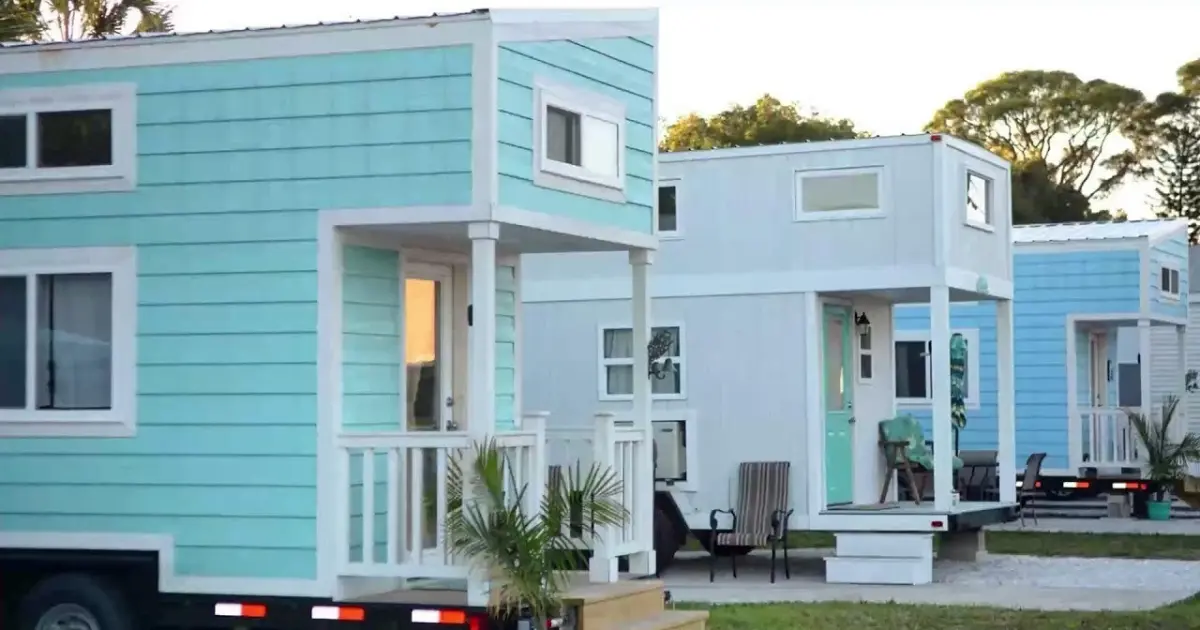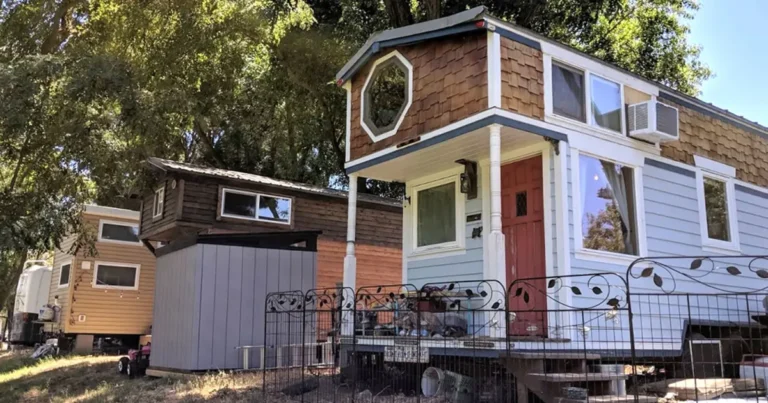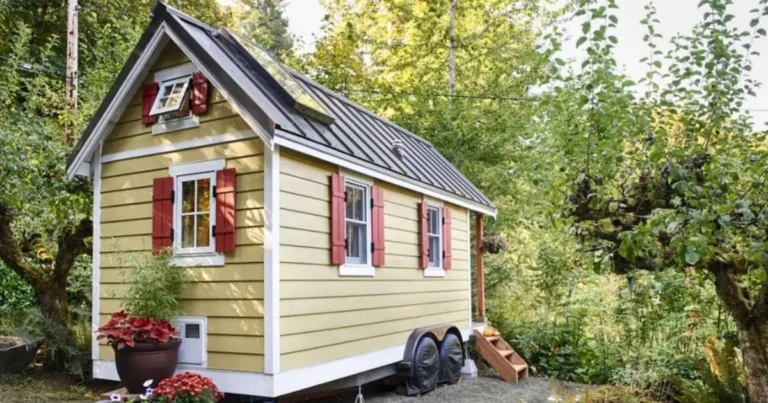What Counties in Florida Allow Tiny Houses? Complete List

Tiny houses are allowed in several counties in Florida, including Miami-Dade, Pinellas, and Sarasota. These counties have regulations that accommodate tiny house living, with varying requirements for zoning and foundation types.
If you’re considering embracing the tiny house lifestyle in the sunny state of Florida, it’s important to know which counties permit tiny houses. In this article, we’ll explore the various counties in Florida that allow tiny houses as well as the regulations and considerations you should be aware of before making the move.
Tiny House-Friendly Counties in Florida
While tiny house living is still a relatively new phenomenon, several counties in Florida have embraced the movement and have regulations in place to accommodate tiny houses.
Miami-Dade County
Miami-Dade County allows tiny houses on wheels as long as they are situated in designated zones and comply with building codes. This provides flexibility for those seeking a vibrant urban lifestyle in a tiny home.
Pinellas County
Pinellas County permits tiny houses as ADUs in residential areas. This makes it an attractive option for individuals who want the convenience of city amenities while enjoying the charm of a tiny house.
Sarasota County
Sarasota County is known for its beautiful beaches and cultural attractions. The county allows tiny houses on wheels in certain zones, offering a unique way to experience the area’s natural beauty.
Escambia County
Escambia County allows tiny houses on foundations or wheels, making it an inclusive choice for those interested in the tiny house movement. It’s important to adhere to setback requirements and zoning regulations.
Hillsborough County
Hillsborough County allows tiny houses as ADUs, enabling homeowners to accommodate family members or generate rental income. Specific regulations apply, so thorough research is necessary.
Tiny House Regulations and Zoning
Before embarking on your tiny house journey, it’s crucial to understand the regulations and zoning laws that apply in your chosen county. Zoning laws dictate where and how you can build your tiny house, ensuring that it meets safety and occupancy standards.
Understanding Zoning Laws
Zoning laws can vary significantly from one county to another. Some counties classify tiny houses as accessory dwelling units (ADUs), allowing them to be placed on the same property as a primary residence. Others may consider them as recreational vehicles (RVs), restricting their placement to designated RV parks.
Minimum Square Footage Requirements
Many counties have minimum square footage requirements for residential structures. While traditional homes must meet certain size criteria, tiny houses often fall below these thresholds. However, counties that are friendlier toward tiny houses may have specific minimum square footage requirements that are more accommodating.
Foundation Types
Tiny houses can be built on various types of foundations, including wheels, skids, or a traditional foundation. Counties may have preferences for certain foundation types, so it’s essential to research and ensure your chosen foundation complies with local regulations.
Exploring the Benefits
Tiny house living in Florida comes with numerous benefits that appeal to a wide range of individuals.
Affordability
The cost of living in Florida can vary, but in general, opting for a tiny house can be more affordable than a traditional home. With a smaller footprint, reduced utility expenses, and potentially lower property taxes, tiny houses offer financial freedom.
Minimal Environmental Impact
Tiny houses are often designed with sustainability in mind. Their smaller size means fewer building materials and less energy consumption. Many tiny house dwellers also adopt eco-friendly practices, such as composting toilets and renewable energy sources.
Simplified Lifestyle
Living in a tiny house encourages a simplified lifestyle. With limited space, individuals must prioritize their possessions, leading to a decluttered and organized living environment. This can lead to reduced stress and a greater focus on experiences rather than material belongings.
Challenges of Tiny House Living
While the tiny house movement has its advantages, there are also challenges to consider.
Limited Space
One of the most significant challenges of tiny house living is the limited space. Individuals must carefully plan their layout and storage solutions to make the most of every inch.
Zoning Restrictions
Zoning regulations can be a major hurdle for tiny house enthusiasts. Finding a county that allows tiny houses and aligns with your lifestyle goals is essential.
Finding Suitable Land
Securing a suitable plot of land for your tiny house can be challenging. It’s important to research county regulations and explore options for purchasing or leasing land that accommodates your needs.
Tips for Transitioning to Tiny Living
Transitioning to tiny house living requires careful preparation and planning.
Downsizing Possessions
Before moving into a tiny house, it’s essential to declutter and downsize your possessions. Keep only the items that truly add value to your life.
Maximizing Storage
Effective storage solutions are crucial in a tiny house. Utilize multi-functional furniture and creative storage hacks to make the most of your space.
Embracing a Minimalist Mindset
Living in a tiny house encourages a shift toward minimalism. Embrace the mindset of owning fewer material possessions and focusing on experiences and relationships.
Making Your Dream a Reality
If you’re committed to the idea of living in a tiny house in Florida, there are several steps you can take to make your dream a reality.
Researching County Regulations
Thoroughly research the zoning regulations and building codes in your desired county. Ensure that they align with your vision for tiny house living.
Choosing the Right Location
Select a location that suits your lifestyle and preferences. Consider proximity to amenities, job opportunities, and recreational activities.
Collaborating with Builders
Collaborate with experienced tiny house builders who understand local regulations and can help you create a functional and aesthetically pleasing living space.
FAQs
Are there any age restrictions for residing in a tiny house in Florida?
Generally, there are no age restrictions for living in a tiny house. However, it’s essential to adhere to local housing regulations.
Can I place a tiny house on a vacant piece of land?
Placing a tiny house on vacant land depends on county regulations. Some counties may permit it, while others may require you to have a primary dwelling on the property.
Do tiny houses in Florida require a specific type of foundation?
The type of foundation required can vary by county. Some counties may allow various foundation types, while others may have specific requirements.
How do I connect a tiny house to utilities in the allowed counties?
Connecting utilities to a tiny house typically involves working with local utility providers to ensure compliance with regulations and proper hook-ups.
Are there communities or neighborhoods dedicated to tiny house living in Florida?
While there may not be many, some communities or neighborhoods in Florida cater to tiny house living. Researching online and networking with other tiny house enthusiasts can help you find these options.
Conclusion
Choosing to live in a tiny house in Florida can offer a refreshing change of lifestyle and provide a unique way to experience the Sunshine State. However, it’s crucial to conduct thorough research, understand county regulations, and plan accordingly to ensure a smooth transition to tiny house living. By embracing the benefits and overcoming the challenges, you can embark on a journey of simplicity, sustainability, and adventure.

